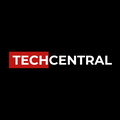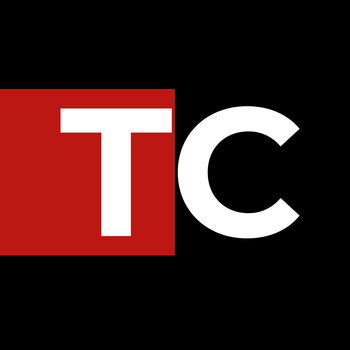
TCS+ | Ricoh – safe and secure role in today’s digital ecosystems
Loading player...
In this episode of TechCentral’s TCS+, Jaydev Chiba engages in a comprehensive discussion with Marcell Otto, digital services product manager for Ricoh South Africa, shedding light on Ricoh’s pivotal role in today’s digital ecosystems, particularly in the realm of governance, risk and compliance (GRC).
The conversation delves into the dynamic landscape of global and local cybersecurity challenges, drawing attention to recent incidents such as cybersecurity breaches, which exemplify the pervasive and evolving nature of cyber threats.
The dialogue unfolds with an exploration of the multifaceted consequences of cybercrime, ranging from substantial financial losses to irreparable reputational damage and intricate compliance issues. Otto underscores the intricate challenges organisations encounter in fortifying their defences against cyber threats. A focus on the aftermath of cyberattacks reveals the protracted timelines and considerable costs associated with recovery, offering a sobering perspective on the stakes involved.
Otto then delves into the significance of compliance with frameworks such as King 4, emphasising the responsibility organisations bear in managing and safeguarding customer data. The discussion briefly touches upon Ricoh’s digital services pillars, positioning the company as a forward-looking provider tailored for the demands of the future workplace.
Ricoh's six digital services pillars play a crucial role in shaping its strategic approach to the evolving digital landscape. These pillars include:
1. Digital workspace: Focused on the transformation of the future workplace.
2. Business process management: Streamlining and enhancing organizational processes.
3. Digital experience: Providing enriched and seamless digital experiences.
4. Graphic communications: Addressing the evolving needs of graphic and visual communication.
5. Cybersecurity: Offering robust solutions to safeguard against cyber threats.
6. Cloud and infrastructure services: Providing essential services to support cloud infrastructure.
A spotlight is then cast on Ricoh's cybersecurity product, RansomCare, a groundbreaking solution designed to proactively mitigate the impact of ransomware threats in real time. Otto elaborates its distinctive approach, which focuses on the swift detection and interruption of malicious encryption, showcasing its efficacy in preventing cybersecurity incidents.
As the conversation concludes, Otto extends a call to action for organisations to seek expert guidance in navigating the intricate terrain of cybersecurity. He underscores the significance of proactive measures and collaborative efforts, framing the imperative to secure digital ecosystems as a collective responsibility for the betterment of society. In essence, the discussion provides a comprehensive and insightful exploration of Ricoh’s strategic positioning in the digital landscape, its commitment to cybersecurity, and the broader implications for businesses operating in an increasingly complex and interconnected environment.
The conversation delves into the dynamic landscape of global and local cybersecurity challenges, drawing attention to recent incidents such as cybersecurity breaches, which exemplify the pervasive and evolving nature of cyber threats.
The dialogue unfolds with an exploration of the multifaceted consequences of cybercrime, ranging from substantial financial losses to irreparable reputational damage and intricate compliance issues. Otto underscores the intricate challenges organisations encounter in fortifying their defences against cyber threats. A focus on the aftermath of cyberattacks reveals the protracted timelines and considerable costs associated with recovery, offering a sobering perspective on the stakes involved.
Otto then delves into the significance of compliance with frameworks such as King 4, emphasising the responsibility organisations bear in managing and safeguarding customer data. The discussion briefly touches upon Ricoh’s digital services pillars, positioning the company as a forward-looking provider tailored for the demands of the future workplace.
Ricoh's six digital services pillars play a crucial role in shaping its strategic approach to the evolving digital landscape. These pillars include:
1. Digital workspace: Focused on the transformation of the future workplace.
2. Business process management: Streamlining and enhancing organizational processes.
3. Digital experience: Providing enriched and seamless digital experiences.
4. Graphic communications: Addressing the evolving needs of graphic and visual communication.
5. Cybersecurity: Offering robust solutions to safeguard against cyber threats.
6. Cloud and infrastructure services: Providing essential services to support cloud infrastructure.
A spotlight is then cast on Ricoh's cybersecurity product, RansomCare, a groundbreaking solution designed to proactively mitigate the impact of ransomware threats in real time. Otto elaborates its distinctive approach, which focuses on the swift detection and interruption of malicious encryption, showcasing its efficacy in preventing cybersecurity incidents.
As the conversation concludes, Otto extends a call to action for organisations to seek expert guidance in navigating the intricate terrain of cybersecurity. He underscores the significance of proactive measures and collaborative efforts, framing the imperative to secure digital ecosystems as a collective responsibility for the betterment of society. In essence, the discussion provides a comprehensive and insightful exploration of Ricoh’s strategic positioning in the digital landscape, its commitment to cybersecurity, and the broader implications for businesses operating in an increasingly complex and interconnected environment.





